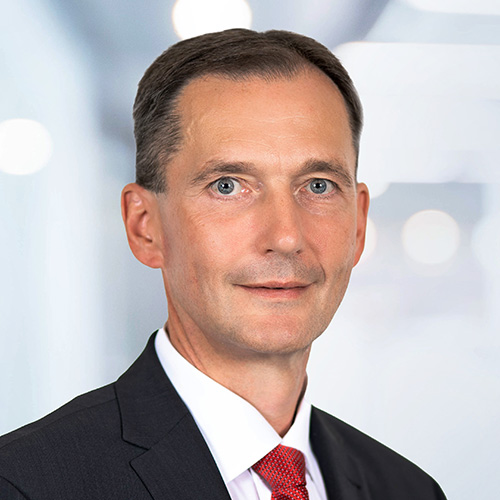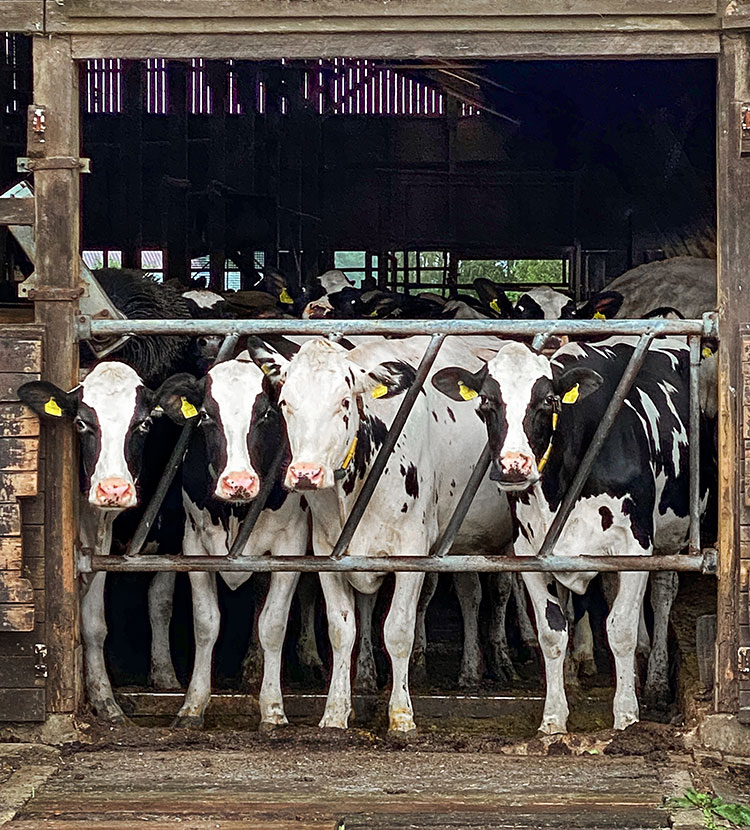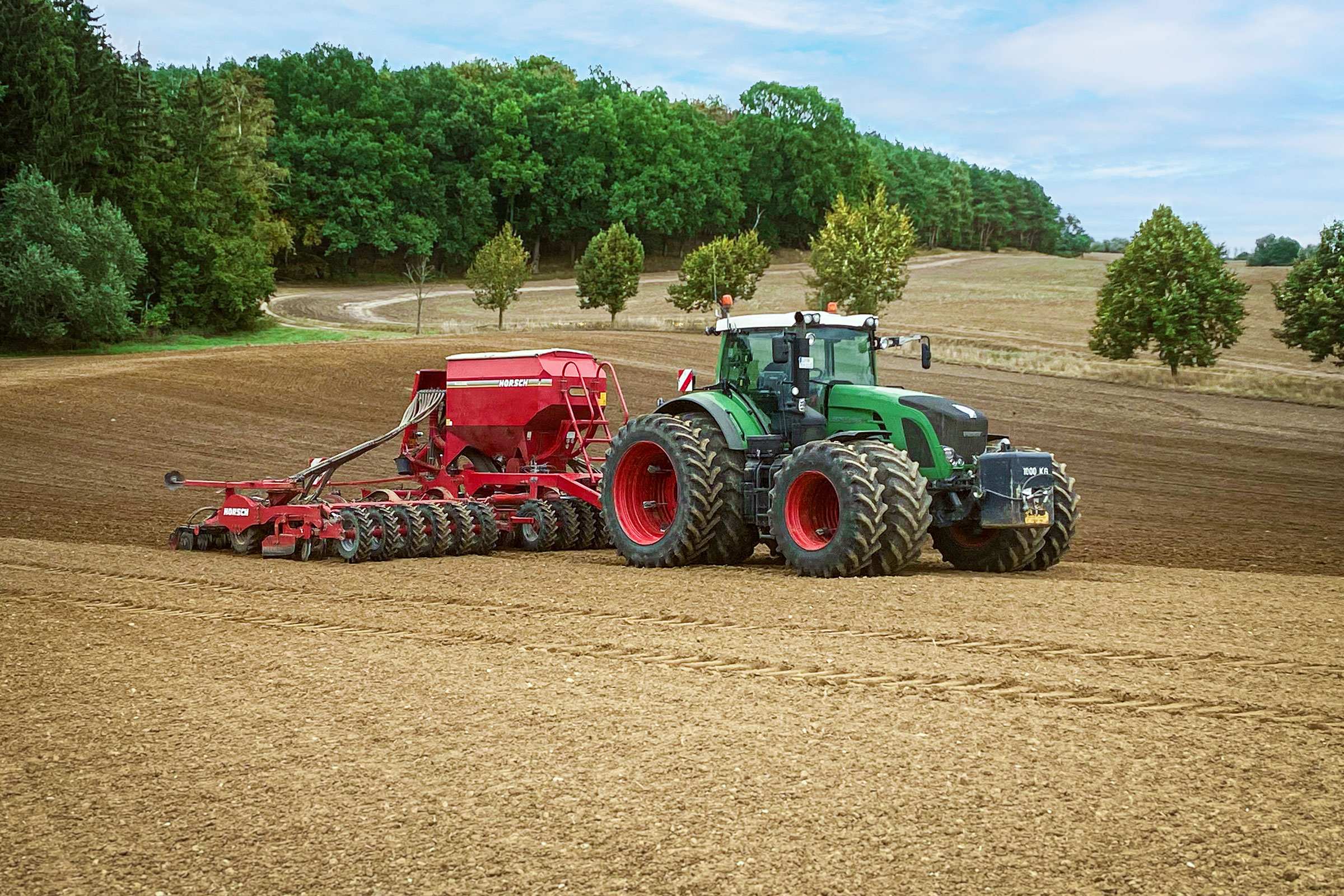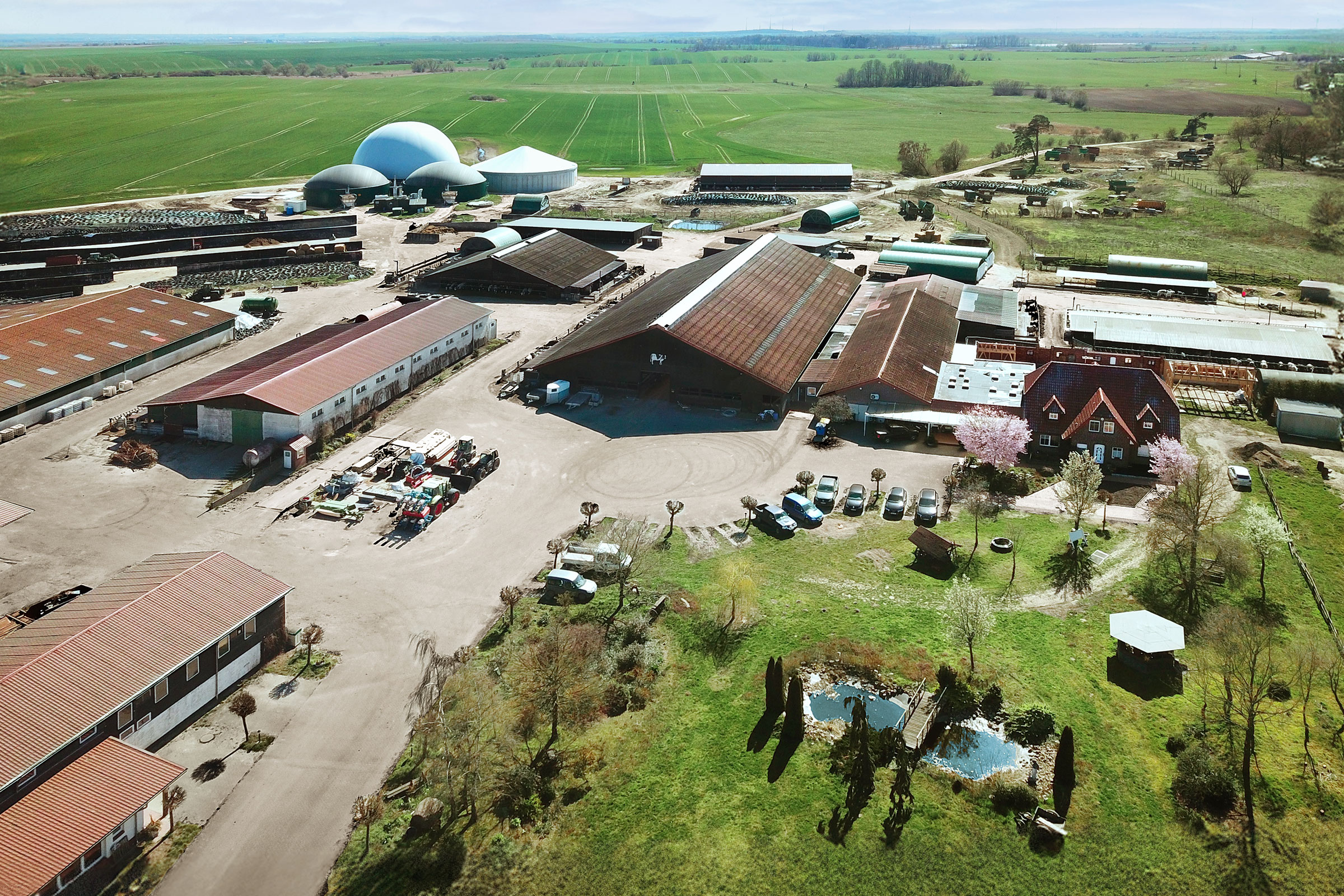Josef Menke started out with 100 cows when he took over the Jagow estate in the Uckermark region in 1992. The business grew over the years, adding cattle, chickens, farmyards and fields. The generational change has now also been successfully completed. Throughout all these changes, Sparkasse Uckermark has been a constant companion and reliable advisor to the family business.
Farming takes perseverance. When Josef Menke decided in the early 1990s to take over the Gut Jagow dairy farm in the municipality of Uckerland, it was the start of a long process that has since resulted in a large farm with around 1,500 hectares of agricultural land. The farm in Jagow was expanded to include property, fields and stables in Brüssow, Kraatz, Kutzerow and Fahrenholz – and the family business became an employer for around 40 people, including trainees.
“We have achieved a lot in the last few decades. Step by step, with a great deal of perseverance and effort. Today, we are a modern agricultural operation, a local employer and a successful family business,” Menke looks back with pride.
Brief profile of the Menke farm
The Menke family farm in the Uckermark has been growing steadily since 1992. Today, the farm cultivates around 1,500 hectares of usable land, 70 per cent of which it owns. With 670 dairy cows, around 500 young cattle, 300 fattening bulls and tens of thousands of organic laying hens, Menke is one of the largest agricultural employers in the region. Around 30 employees work there all year round, plus trainees, temporary staff and interns. The farm grows crops including wheat, rapeseed, silage maize and lupins. A sustainable approach and continuous modernisation secure the future of the family business.
A holistic approach
However, the beginnings were much smaller. The family initially farmed around 300 hectares of land for their cows. The following year, a new cubicle barn for 250 cows was built. A new milking parlour, a residential building and the lease of additional fields were added – and that was just the beginning. Because that is the other side of farming: financing investments in farms is a long-term undertaking. Sparkasse Uckermark gave Josef Menke various loans for the purchase of the properties, new buildings and renovations.
With advice and financing from Sparkasse Uckermark, several older houses have been purchased and completely renovated over the years, and new single-family homes were built. Menke rents these out primarily to employees to offer them long-term housing locally and integrate them into the business on a permanent basis.
Everything followed the grand plan of doing as much as possible on the farm himself. Menke therefore built stables for calves and young cattle in order to maintain and expand his herd independently. He also added fields for fodder. As early as 2008, he began using photovoltaics to reduce operating costs and become more independent in this area as well. “We started early on to set up the farm in such a way that we could take as many steps as possible ourselves,” he explains.
Josef Menke takes a holistic approach to farming. He combines arable and livestock farming in a way that conserves nature and resources. Two of his three children, Henrik and Magnus, also work in agriculture – and are already entrepreneurs themselves. The result is a farm that harmonises production with nature conservation, and one that plans for the future.
Guided by a long-term vision
To achieve all this, he needed a partner who understood this long-term approach and shared his vision, as Thorsten Weßels, CEO of Sparkasse Uckermark, explains: “Investment in agriculture always involves long time frames and many uncertainties. Weather, market prices and political conditions are dynamic. This makes it all the more important for a bank to be a reliable partner who thinks along with you and supports the project. The Menke family had a clear idea of how they wanted to develop their business right from the start. We are happy to support such concepts, especially when they are implemented with such perseverance and foresight and are so important for the local economy.”
Sparkasse Uckermark has been a reliable partner to the Menke family from the very beginning. In the early 1990s, Josef Menke received a loan from the local Savings Bank to purchase land from the Treuhandanstalt, which privatised state-owned businesses in the GDR. The Savings Bank also provided loans to support the modernisation of the stall barn, the lease of additional land and the construction of a dry cow barn and a machinery building.
Uckermark region
The Uckermark is one of the most sparsely populated regions in Germany. To the east lies the Lower Oder Valley National Park and to the south the Schorfheide-Chorin Biosphere Reserve and the Grumsiner Forest / Redernswalde UNESCO World Heritage Site. Farming plays a central role in the local economy. Around 58 per cent of the Uckermark – approximately 176,500 hectares – is used for agriculture, mainly for growing grain, rapeseed, maize and other crops. Around 540 farms, from family farms to large enterprises, characterise the region. In addition, there is a diverse infrastructure with dealers for seeds, agricultural machinery and operating resources. The natural conditions – fertile soil and a temperate climate – make the Uckermark an important agricultural location. Farming creates jobs, secures incomes and thus makes a significant contribution to regional stability and development.
Menke’s long-term vision is also evident in the renovations to the farm. In 2008, he built an irrigation well and installed a photovoltaic system on a new storage shed. The following year, he received financing to build additional photovoltaic systems and commissioned a 600-kilowatt biogas plant in 2010. “Sparkasse Uckermark has been a reliable partner for us right from the start. Especially when it came to larger investments such as photovoltaic systems and the purchase of land, it was important to have someone at our side who understands regional farming and thinks like us in the long term,” says Josef Menke.

»We have been a reliable partner since the company was founded, and we have built a sustainable business relationship. Our trusting cooperation, even in challenging times, is the basis of our joint success.«
Chairman of the Board of Sparkasse Uckermark
Economic fluctuations require strong partners
In 2011, tens of thousands of laying hens, which Menke keeps according to organic standards, joined the dairy cows and bulls. A year later, he commissioned two more laying hen facilities, followed by two additional barns in Brüssow in 2014. At the same time, he built more photovoltaic systems and now generates 1,200 kWp. In Kutzerow, he connected his buildings to the heating network.
This is not just an expansion of his own farm, but also a response to the changed economic and ecological situation. Climate change is posing major challenges for farmers throughout Germany and forcing them to rethink their approach. The Uckermark region has been suffering from drought for years.
In farming, these climatic changes are compounded by economic volatility. Significant investment is needed to remain viable. However, market fluctuations can hit businesses hard. When milk prices fell dramatically in 2015, Sparkasse Uckermark granted a loan to support the Menke’s business. “A lot is expected of farmers today. Necessary investments cannot be made without the financial backing of partners such as the Sparkasse,” sums up Josef Menke. “We support local agriculture because it is important for the country as a whole. It is in the nature of things that there are sometimes bad years, when we have to provide support to ensure long-term food security in Germany. And every farm counts,” acknowledges Thorsten Weßels.

»A lot is expected of farmers today. Necessary investments cannot be made without the financial backing of partners such as the Sparkasse.«
Farmer
Sparkasse Uckermark is therefore an active partner of regional agriculture. It is a member of the district farmers’ association and supports the district harvest festival and the farmers’ ball. It invites farmers from the region to the OSV agricultural convention to exchange experiences. Farmers benefit not only from the Savings Bank’s expertise, but also from its network: contacts with agricultural machinery dealers, tax offices and consulting firms provide concrete advantages in everyday life. In this way, the Savings Bank helps to make farming businesses in the Uckermark fit for the future.
Josef Menke is also committed to the region. In addition to his work on the farm, he is politically active as a councillor in both the local and district council, where he represents the interests of the rural population and farming. He volunteers for the Uckermark Farmers’ Association and the Uckerseen Water and Soil Association, where he promotes the sustainable use of natural resources. His commitment shows how closely farming, responsibility and the common good are linked for him. His goal: ecologically sustainable and socially anchored farming.
Brief profile of Sparkasse Uckermark
Sparkasse Uckermark is a leading business partner in the region. Its 200 employees are not only closely connected to the Uckermark region, they also understand the specific challenges and opportunities facing local farming and support local farmers in all their projects with sound advice and quick decisions. Headquartered in Prenzlau, Sparkasse Uckermark has seven other branches and manages a total of over EUR 1 billion in customer deposits.
www.spk-uckermark.de
Today, Menke and his employees farm around 1,500 hectares of land. They keep almost 1,500 cattle – dairy cows, young stock and fattening bulls – as well as tens of thousands of chickens. The fields are planted with wheat, barley, rapeseed, lupins and maize. Feed for the cattle is harvested from 200 hectares of meadows. The farm is a success story, built on good cooperation. But standing still is not an option. The modernisation of the dairy cattle and barn facilities in Kutzerow is already planned, as is the renovation of the barn in Fahrenholz. New, high-performance machines will make the farm more efficient. “There is no standing still in farming,” summarises Josef Menke. “There is always something to improve – the barns, the machinery or the processes. If you don’t invest today, you’ll be left behind tomorrow. That’s why we are constantly planning to keep the business fit for the future.”

